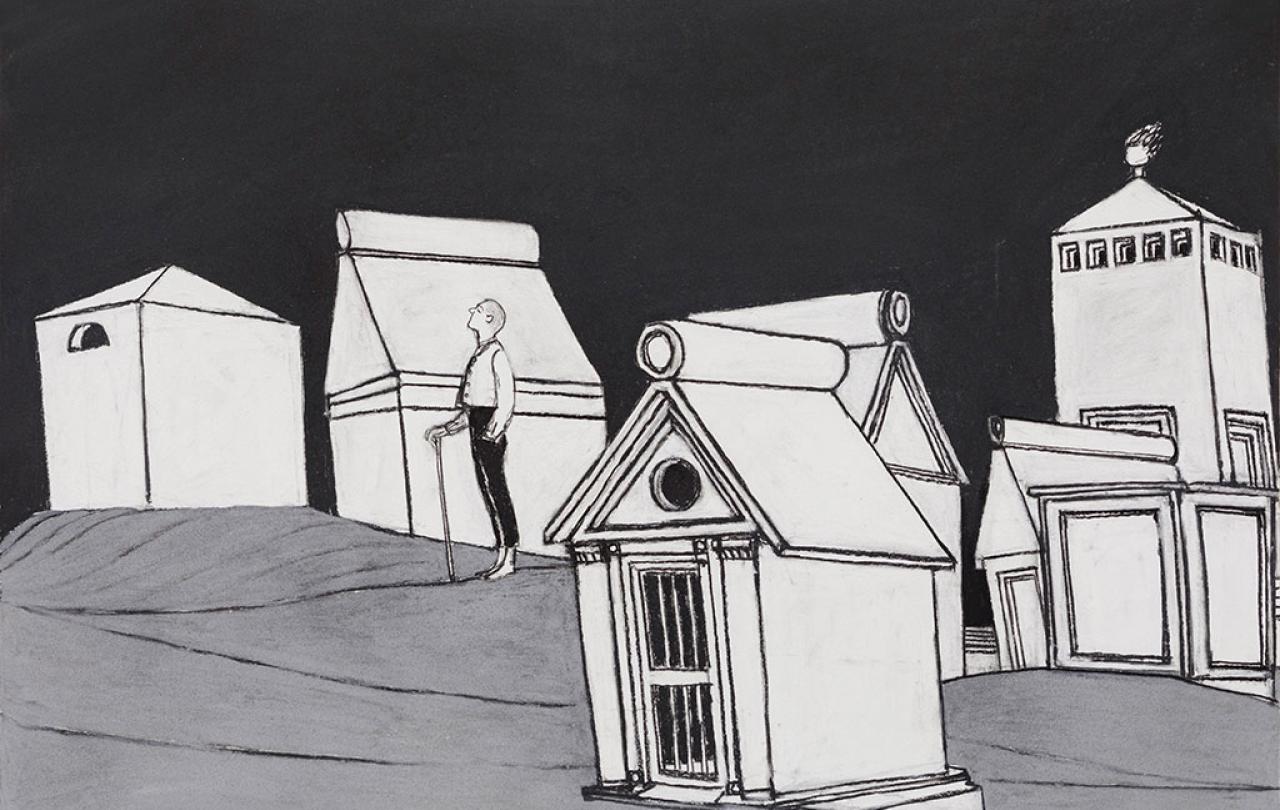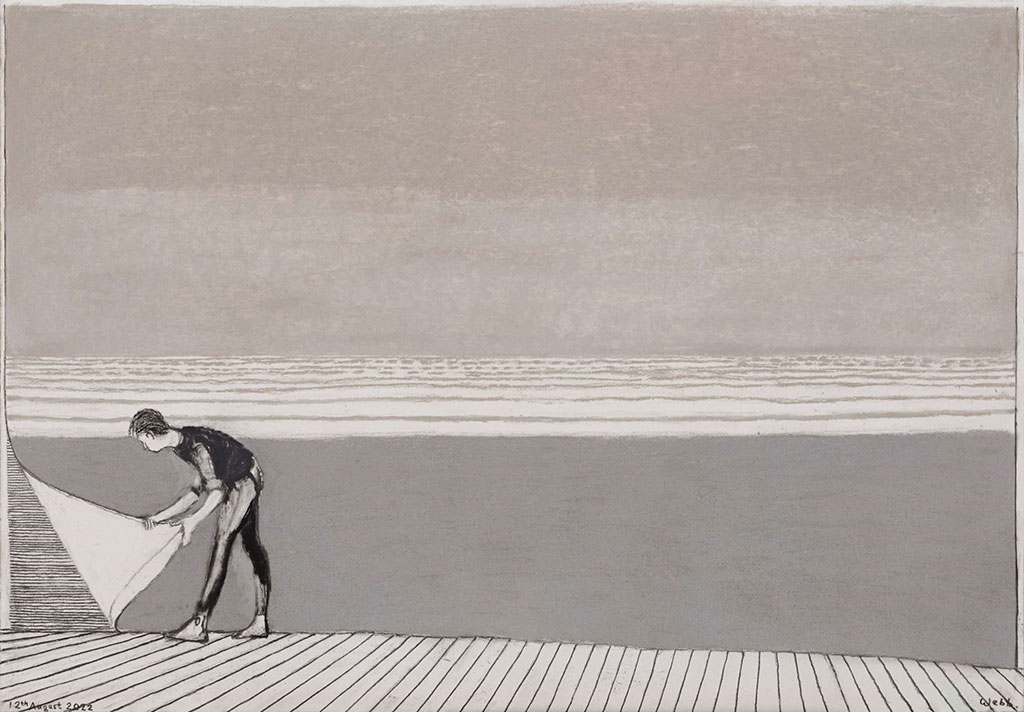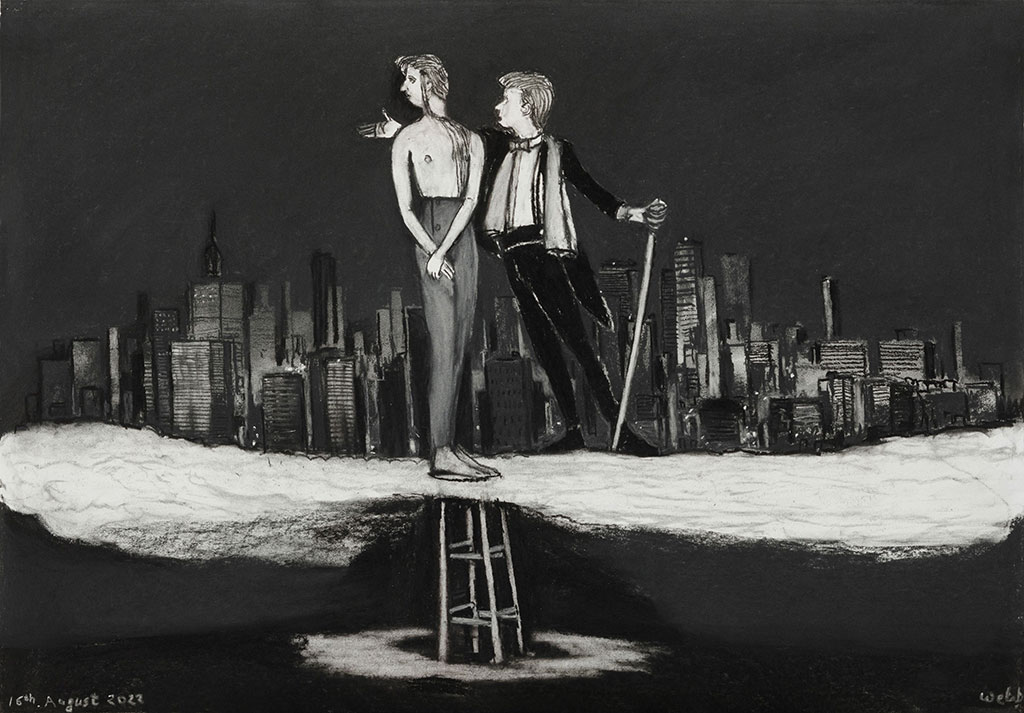
This is silly, I realize. You’ll never see this. But I’ve just finished Intermezzo and I’m not sure what else to do with the bright sadness upon finishing it.
I can’t imagine I am your anticipated reader. I have children your age, for heaven’s sake. You write from, and about, worlds that are, in some ways, a foreign country for me. Sometimes I read your novels like Lévi-Strauss’s field notes from his years with the Nambikwara, describing the practices and rituals and mores of some foreign tribe—except that tribe includes my own children and the students I encounter everyday. Sometimes this makes me feel very old, and tired, and a little bit sad. Not in a judgmental way. I can’t imagine how hard it is to be 23 years old today. I feel badly about the world we’ve bequeathed to the twenty- and thirtysomethings that populate your novels. Your novels give me a glimpse into how they experience it. Which is what I love about the best fiction—the way it is a technology of mindreading, teleporting us into another’s perspective.
I don’t know, maybe it’s weird and kinda creepy that an old man like me gobbles up a novel like Intermezzo. Like a kind of voyeurism. I hope not. Because, in the end, what you achieve is at once the construction and revelation of a human world. And as Terence said, nothing human is alien to me.
This will sound crazy, but from the very first pages of Intermezzo I found myself reading with a strange sort of ache in my heart. Not a pain as much as a held-breath sense of ekstasis, of being stretched and pulled out of myself. I think now I’d say I was responding to what I can only describe as the tenderness you show your characters. I don’t mean for a second that you shrink from portraying their brokenness, even their brutality at times. But only that as you track their mystery and monstrosity you situate all of it in their ineradicable humanity. And in contemporary fiction, that is rarer than some might think. It speaks to me of a fullness that characterizes the matrix of your imagination, from which these characters were born. You don’t let them escape judgment; but that judgment comes from their own social worlds, not the caustic condescension of you as the narrator. This is where your mastery of free indirect speech is so uncanny: you stay near your characters, you listen closely, but somehow in the alchemy of your prose even their own harsh self-judgment is portrayed with tenderness and understanding.
Honestly, it reminds me a lot of how the mystical tradition portrays God, that Creator of all creators, the Narrator who is in love with every feeble creature, every loathable antihero, which is to say every single one of us, protagonists in dramas we don’t realize. There’s this marvelous line in The Cloud of Unknowing where the medieval sage says, “It is not who you are or what you’ve been that God sees with his merciful eyes, but what you want to be.” This will make you cringe, but your narration echoes that. You see what Peter and Ivan want to be. And in so doing, you help me look at all the human beings around me with the same sort of eyes. Or at least I want to be that person.
OK, this is, like, crazy word association, but as I was reading Intermezzo a line of prayer kept coming to mind. You might know it. It’s from the Psalms. It’s part of Prime, the first hour of the Divine Office. St. Teresa of Ávila talks about it a lot. Dilatasti cor meum. You enlarge my heart. You dilate my heart. You widen the scope of what my heart can take in and absorb. This, in the end, is what Intermezzo does. For me, at least.
It’s funny, you know. I finished the second half of the novel while I was attending the annual conference of the Hegel Society. (I thought you’d get a chuckle out of that.) So in the margins of Intermezzo I have scribbled notes like: Recognition! Master/slave dialectic!3 But it’s really not so crazy, is it, because, like Hegel, you seem to intuit how much we long to be seen, to be recognized, and why that means passing through the crucible of forgiveness to achieve reconciliation. This is why I think you are attuned to a below-the-surface rumbling in your generation that, against all the forces of capital and Distraction, Inc. and just the bullshit of consumer nihilism, can’t quite shake a yearning, or at least a wondering, if there’s something more—something like “meaning” or significance we could feel pulled into. I love it that, in Intermezzo, this culminates in a vision of community. (I’m trying not to spoil anything here, since, ahem, my wife hasn’t been able to finish the book yet.) Being known, being seen, being forgiven, being loved. Belonging.
My aforementioned (long suffering, forgiving) wife loves a song by the Highwomen called “Crowded Table.” She plays it full blast in our kitchen when she’s preparing for dinners when she gathers beloveds near. “I want a house with a crowded table / and a place by the fire for everyone.” I thought of the bridge of the song at the end of Intermezzo.
Everyone’s a little broken
And everyone belongs.
I finished your book on a packed train from Boston to Philadelphia and decided not to be embarrassed that I was weeping. The older I get, the more paternal I become, I’m realizing. I don’t think that’s an expression of control or “paternalism” in the negative sense. At least I hope not. It’s more that the older our kids get, more of the world is filled with people who look like the children I love. I don’t mean that I infantilize them, either. I treasure the adults they’ve become.
I’m not describing this very well. What I’m trying to say is, I am just an inveterate dad. I can’t help it. So as much as I read your novel as a scholar or a philosopher or a fellow human, I couldn’t help reading it as a dad. And when I spent time with Peter and Ivan and Sylvia and Naomi, I just wanted for them what I want for my own children and their spouses—for them to know they are loved and held dear and for them to find their people. It’s silly and sappy, but I wanted to talk to Ivan and Peter and tell them: It’s possible. There is still love in the world. Even more incredibly: there is forgiveness. Intermezzo has the audacity to not only hope this but to portray it. I know it costs you something to do so in a literary world that prizes cynicism and distance.
Maybe I wept at the end of Intermezzo because it was as much a mirror as an icon. Despite the generational gap, you gave me occasion to see my own life reflected back to me. In the mirror is an us (“The I that is we and the we that is I,” as Hegel put it). I look in the mirror of longing & hope that is your novel, and looking back I see my wife, Deanna, who has been forgiving me for over 35 years, letting me know I am beloved. And we’re surrounded by our children, the overflowing of our own love, these children who have become such dear friends, who have forgiven me more times than I can count. And in that mirror their spouses are alongside them, our dream come true—the beloveds they have found who forgive them and welcome them home over and over again. It’s a crowded table. And there’s always more room. Everybody’s a little broken, and everybody belongs.
I guess what I want to say is: I admire your courage to write a novel that tells the truth—that love gets the last word because it is the first word that speaks us all into being, the origin of the world.
Gratefully,
A reader
This article first appeared as a post on James K.A. Smith's Quid Amo Substack. Reproduced by kind permission.









